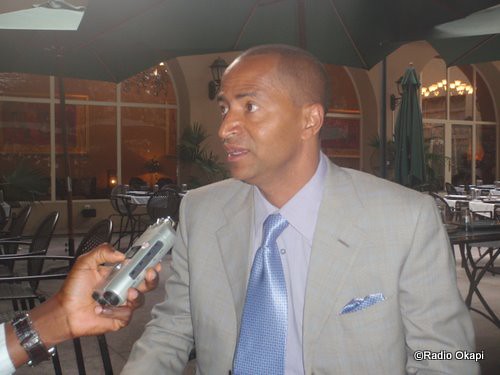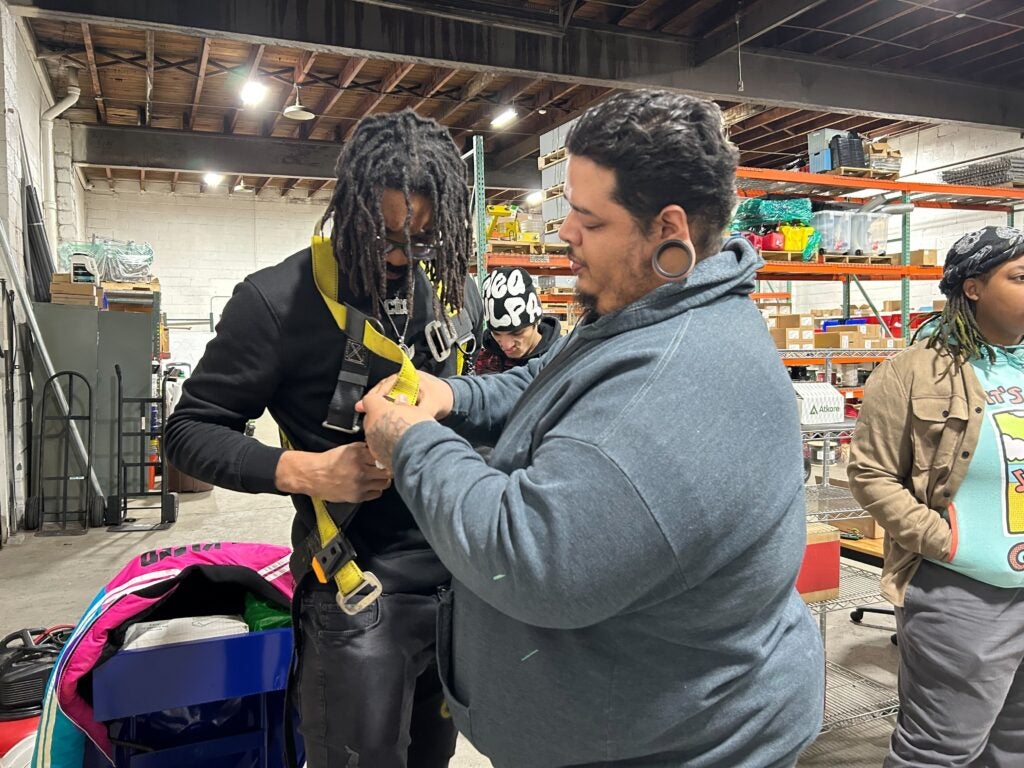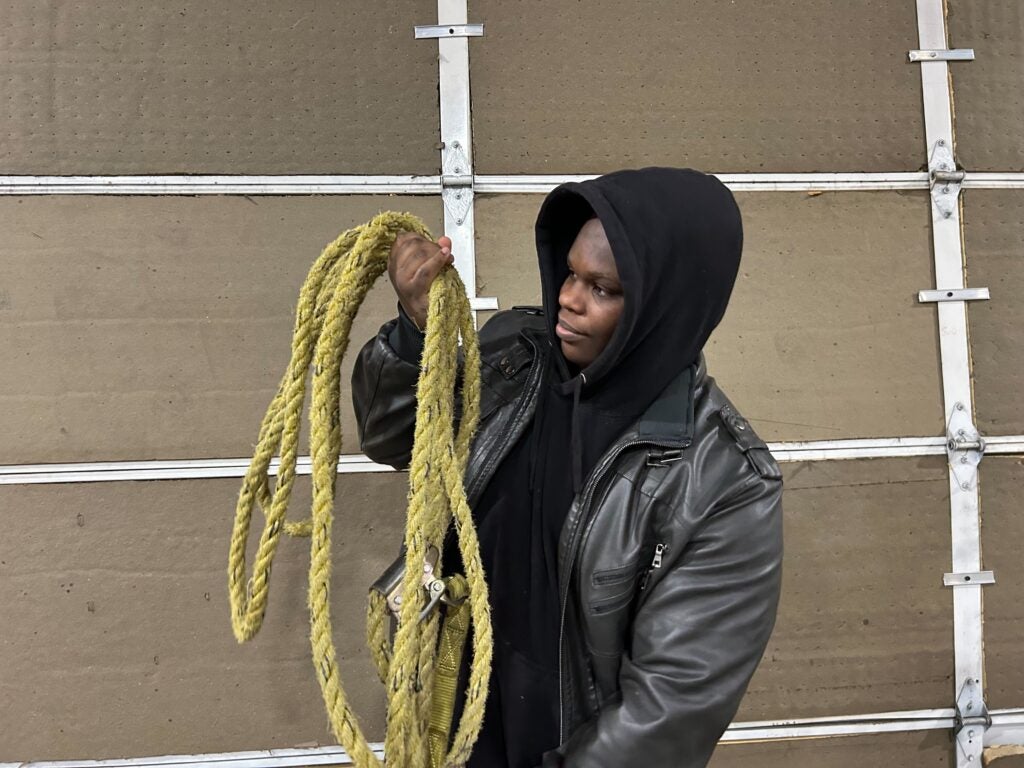‘You’re part of a movement’: This solar industry training program focuses on justice-involved Philadelphians
Moises #Moises

This story is part of the WHYY News Climate Desk, bringing you news and solutions for our changing region.
From the Poconos to the Jersey Shore to the mouth of the Delaware Bay, what do you want to know about climate change? What would you like us to cover? Get in touch.
If you have solar panels installed on your roof in the next few years, Ahmad Shubert might be involved.
The 25-year-old resident of North Philly has planted trees and controlled invasive species in the city through PowerCorpsPHL. He’s now learning skills to enter the solar industry, which he sees as a different kind of environmental work that more directly impacts people’s lives.
“This is the other side of things that I don’t know about,” he said. “This is along the lines of helping the community — and work.”  Ahmad Shubert at the Solar States training warehouse in Port Richmond. Sophia Schmidt/WHYY)
Ahmad Shubert at the Solar States training warehouse in Port Richmond. Sophia Schmidt/WHYY)
Shubert is one of nearly a dozen young Philadelphians participating in a new program by Solar States that aims to turn people who the justice system has impacted into the next generation of solar installers.
They’ll be entering a growing industry. Solar installation across the country hit a record high in 2023, and is expected to be the top source of U.S. electricity generation growth over the next two years.
A three-month program for solar career readiness
The goal of Solar States’ Find Your Ladder program is to prepare participants to go right into jobs in the solar industry, said Moises Morales, the company’s lead instructor.
“They should be ready to go out and just join with any solar company, start installing right away, and be a functional team member for any crew,” Morales said.
The roughly 14-week program consists of a paid, part-time training program — with both classroom and hands-on portions — followed by a 30- to 40-hour per week internship. It’s funded through the city’s Fair Chance Hiring Initiative and POWERCorps and supported by the Philadelphia Energy Authority. It pays participants $15 per hour.  Trainer Moises Morales helps Eric Coleman demonstrate safe harness use. (Sophia Schmidt/WHYY)
Trainer Moises Morales helps Eric Coleman demonstrate safe harness use. (Sophia Schmidt/WHYY)
The training program focuses on solar system installation on residential homes.
“They learn racking, actually how to attach systems to the roof. They learn different attachment styles, different systems … They learn the difference between, say, a pitched-roof system and a flat-roof system,” he said. “They also learned basic electrical installation.”
Participants get an OSHA safety certification and take an entry-level solar certification exam through the North American Board of Certified Energy Practitioners.
“It is an amazing certification to have if you want to be part of the industry,” Morales said. “It definitely gets you a foot in the door in a lot of places.”
Shubert enjoys learning about the politics surrounding renewable energy and fossil fuel infrastructure, as well as the math and science aspects of the solar industry.
“Even figuring out how many solar panels to put on a roof — that’s an equation. Or figuring out how the panels turn light into energy — that’s a scientific process,” Shubert said. “I really like that part.”
Becoming an ‘activist’
Camiren Williams was initially attracted to solar as a solid career path — with installers earning an average hourly wage of around $23 nationwide in 2022.
But two weeks into the Find Your Ladder program, the 21-year-old from University City who has not had involvement with the justice system said he’s learned there’s a lot more to working in the solar industry. He joined Find Your Ladder through PowerCorpsPHL’s Foundations program.
“You’re not just going to be getting paid nicely,” Williams said. “But you’re also kind of like an activist. … We’re trying to get people into solar because global warming … it’s a real problem.”  Camiren Williams at the Solar States training warehouse in Port Richmond. Sophia Schmidt/WHYY)
Camiren Williams at the Solar States training warehouse in Port Richmond. Sophia Schmidt/WHYY)
Morales, the trainer, said this is a big part of his courses.
“I tell each and every one of my students, … you’re part of a movement that’s much much bigger than just putting dinner on a table,” he said. “This is one of the few Industries where you can have a direct impact on the earth, just by going to work every day.”
Advocacy is important because of the direct effect that federal and local legislation can have on the solar industry, Morales said. For example, sales of rooftop solar installations in California dropped last year after a change in state policy reduced the value of credits homeowners get for sending electricity back to the grid. And in 2022, Congress increased homeowners’ federal tax incentive for installing rooftop solar.
Williams is hopeful that renewable energy will eventually win out. After graduating from the Find Your Ladder program, he plans to one day start his own business — likely a solar maintenance company.
“I think it’s gonna be a transition where everybody’s gonna have [solar],” Williams said. “We’re gonna get that clean energy, and the fossil fuels and the petroleum and all that crap will be pushed to the side. Eventually we’re gonna get there.”
A new cohort starts training Feb. 26
There’s still time to apply for this year’s Find Your Ladder program, with a second cohort starting Feb. 26. The second cohort is open to justice-impacted people, which include those who have been arrested, charged, convicted or detained in a carceral setting, aged 18 and older.
There are no educational or work experience prerequisites.
“Anybody’s welcome,” Morales said. “I’ve had people from hospitality, people coming straight out of college. I’ve had students who have a construction background. … Everybody starts at the beginning, we work our way through together until they’re competent installers.”  Solar States trainer Moises Morales draws a diagram on a whiteboard during the Find Your Ladder training program. (Sophia Schmidt/WHYY)
Solar States trainer Moises Morales draws a diagram on a whiteboard during the Find Your Ladder training program. (Sophia Schmidt/WHYY)
You can apply online through Solar States’ website.
The program is good for those looking to figure out their careers after involvement with the criminal justice system, Shubert said. He had a hard time landing his next job after an arrest for carrying his gun without a license to carry, despite putting out a bunch of applications. He now hopes to go into project management, likely in the solar industry.
“If you have a felony or something like that and you want to find a job, … this is really helpful,” he said.
Shubert recommends bringing an open mind, particularly about the math and science elements of the training — which he describes as “not as intense” as you might imagine.
“If you want to learn a little bit and have room to grow in the career field … maybe you should be doing solar,” Shubert said. “And it’s helping the community.”
WHYY is your source for fact-based, in-depth journalism and information. As a nonprofit organization, we rely on financial support from readers like you. Please give today.